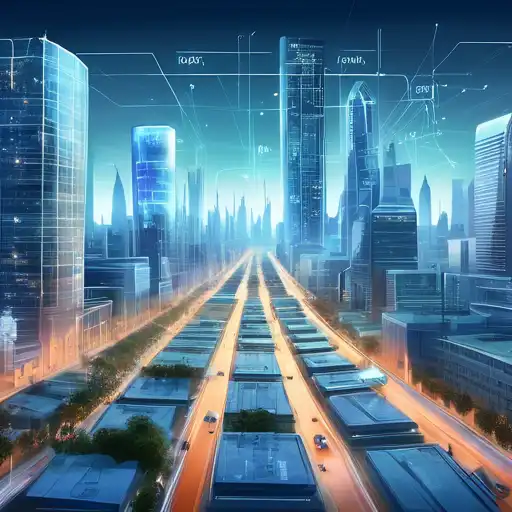Introduction to IoT and Smart Cities
The Internet of Things (IoT) is revolutionizing the way we live, work, and interact with our environment. By connecting devices and systems across cities, IoT is laying the foundation for smarter, more efficient urban landscapes. This article explores the transformative impact of IoT on city infrastructure, public services, and the overall quality of urban life.
Key Areas Where IoT is Making a Difference
From traffic management to waste disposal, IoT technologies are being deployed across various sectors to enhance efficiency and sustainability. Below are some of the key areas where IoT is making cities smarter:
- Traffic and Transportation: IoT-enabled sensors and cameras are optimizing traffic flow, reducing congestion, and improving public transportation systems.
- Energy Management: Smart grids and meters are enabling more efficient energy use, reducing costs and environmental impact.
- Waste Management: Sensors in waste bins are optimizing collection routes and schedules, leading to cleaner streets and lower operational costs.
- Public Safety: IoT devices are enhancing security through real-time monitoring and emergency response systems.
Benefits of IoT in Urban Development
The integration of IoT into city infrastructure offers numerous benefits, including:
- Improved efficiency and reduced operational costs
- Enhanced quality of life for residents
- Greater environmental sustainability
- Increased safety and security
These advancements are not only making cities more livable but also more resilient to the challenges of urbanization and climate change.
Challenges and Considerations
Despite its potential, the widespread adoption of IoT in cities faces several challenges, such as privacy concerns, cybersecurity risks, and the need for significant investment in infrastructure. Addressing these issues is crucial for the successful implementation of IoT solutions.
Future Prospects
As technology continues to evolve, the possibilities for IoT in urban development are boundless. Future advancements could lead to even more innovative applications, further transforming the way we experience city life.
For more insights into how technology is shaping our world, explore our articles on technology trends and sustainable urban development.
Conclusion
The role of IoT in making cities smarter cannot be overstated. By harnessing the power of connected devices, urban areas are becoming more efficient, sustainable, and livable. As we move forward, the continued innovation and adoption of IoT technologies will be key to addressing the complex challenges of modern urbanization.
